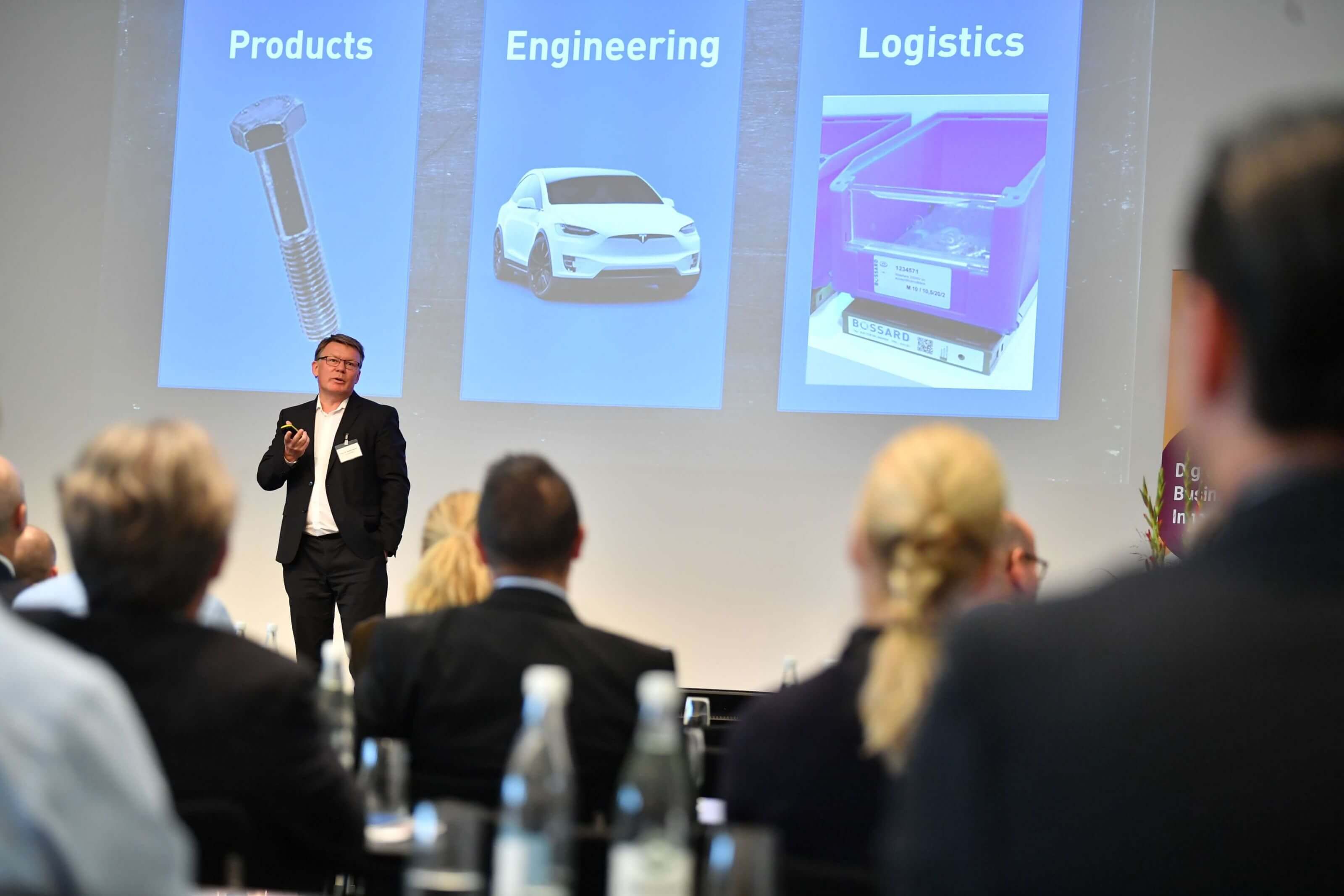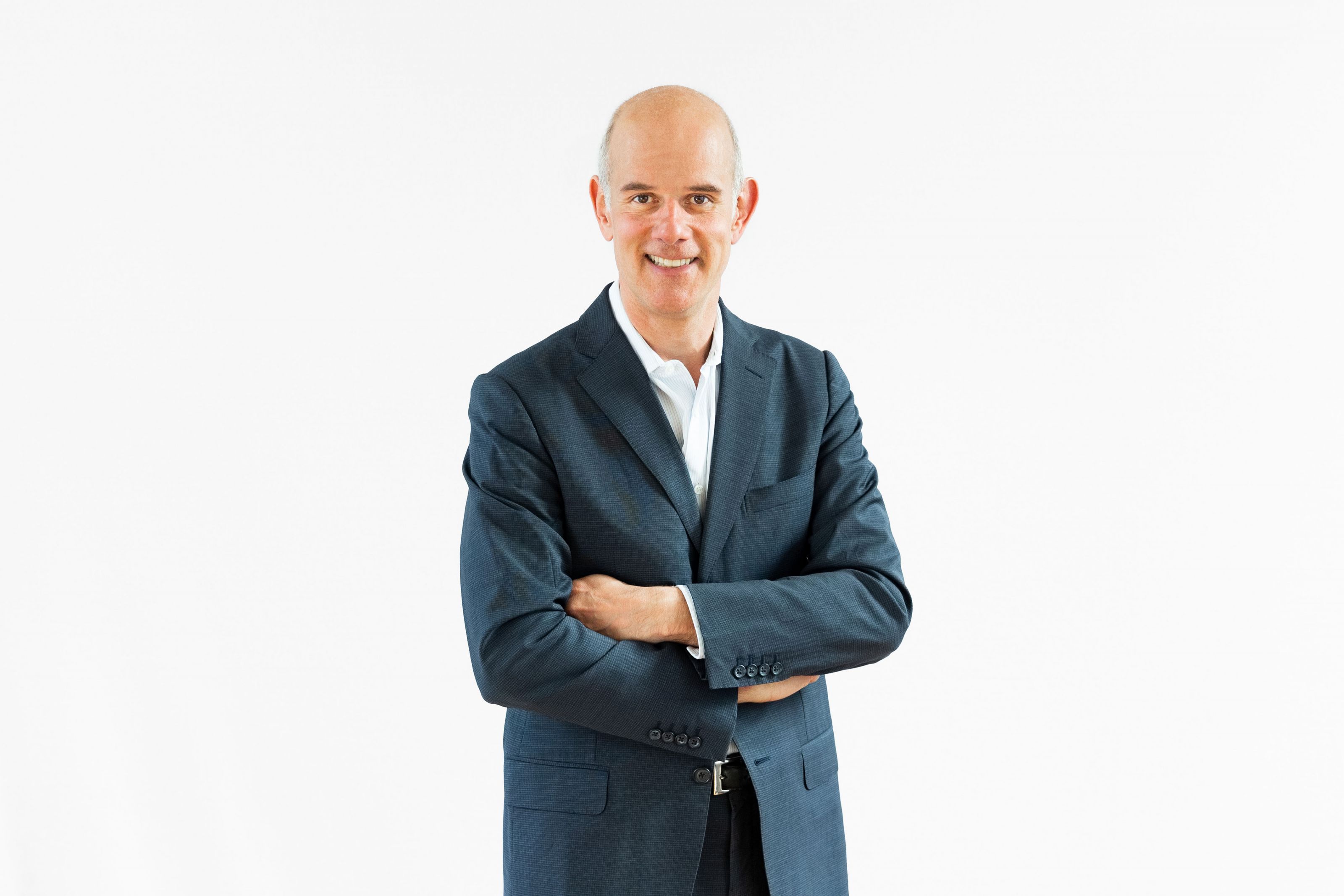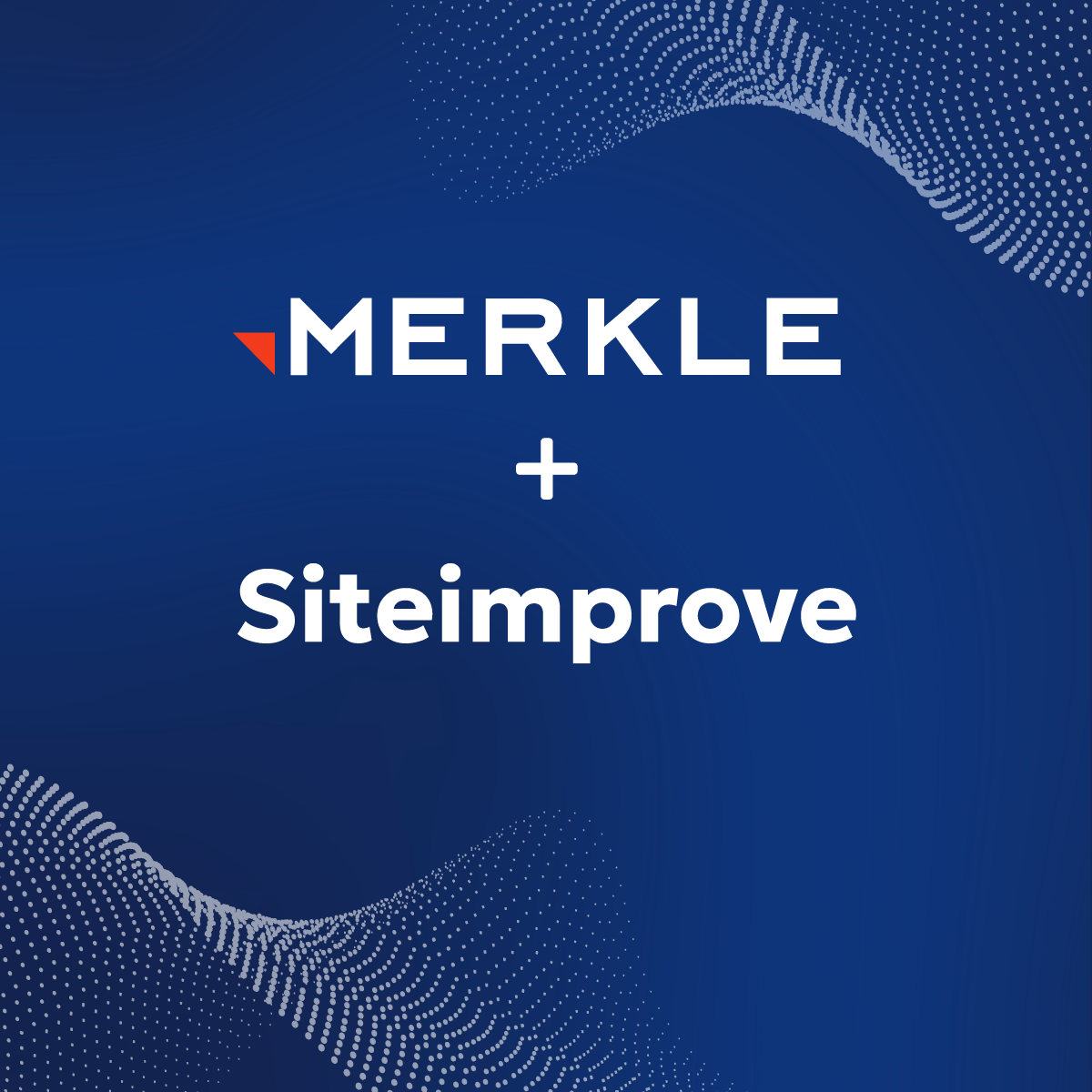Digital transformation or strategies for companies
Lecture by Stefan Michel from Bossard at the Smart Business Day 2019
Stefan Michel is a "Dean Executive MBA" and Professor at IMD as well as a member of the Board of Directors at Bossard. At Namics' Smart Business Day he will speak about Digital Strategy instead of Digital Transformation. And he will do so using the reality at Bossard (and a little bit at IMD). Let's have a listen.
The introduction to Bossard (we do screws) is pleasantly short and funny. Sales CHF 880 million, margin twice the industry average and supplier of Tesla. Bossard contacted Tesla four years before the first car was delivered and subsequently acquired it. And a promise I won't keep from you: "You can screw a lot on PowerPoint".
"For me, the surprise is how long it took [to digitalize]" (his dissertation dealt with e-banking in 1996). Work on the strategy for digital transformation at Bossard began in 2015, the important thing was not to neglect the business and to build on existing strengths. Or in other words: "Don't say digital transformation if it's not.
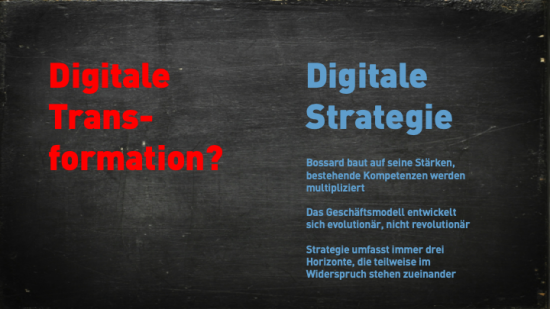
What was the problem? When boards of directors discuss, too many backgrounds and understandings come together and there is no focused discussion. One person talks about Twitter, another about Amazon and another about artificial intelligence. Bossard was helped by the breakdown of the strategic discussion into the following six levels, which Michel then fills with content.
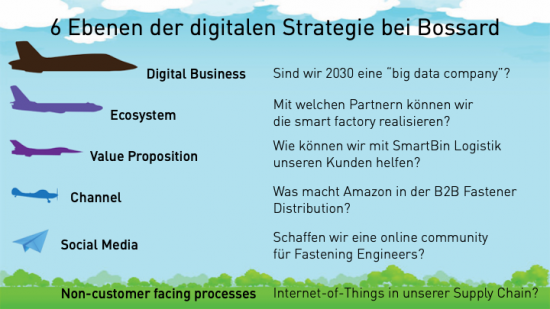
The core question that should guide us again and again is whether customers should pay for these services.
The classification into these few levels is too banal for many, but it is appropriate for a board of directors that is dealing with digital issues for the first time.
Another simple model they use is "three horizons". The breakdown of the initiatives into three time horizons over five years. Attached to this is the actual process including an annual workshop of the Board of Directors. According to the law, the Board of Directors is responsible for the strategy and must deal with it. Around 15 initiatives were defined in the first iteration.
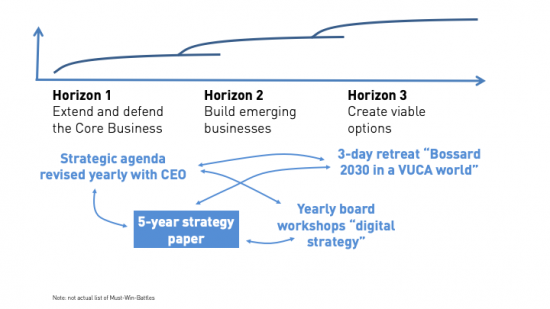
An exciting discussion was the one on 3D printing. What happens when customers print coffee machines themselves? Then they no longer need screws. The technicians said that this scenario was too expensive, poor quality and not practical. A similar attitude to that of Kodak's technicians, who were against digital photography. Bossard subsequently invested heavily in the market for 3D printing products and services.
"If it doesn't hurt, it's not a real decision". Anything else is not a strategy, but at best planning or just wasted time.
